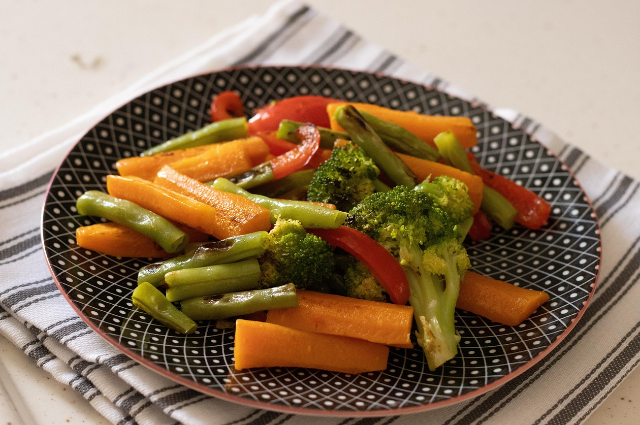
How slowing down at the table sharpens decisions, prevents burnout, and sustains entrepreneurial success.
The life of a startup founder is a paradox of extremes. On one hand, it’s the change to create something new, to do some innovation, and to build the vision into reality. On the other hand, it’s the days filled with relentless pitches, meetings, and late-night problem-solving sessions. There is always the constant load to make critical decisions under uncertainty. In this high-pressure environment, food has always been overlooked. Rather, they rely on quick coffee, energy drinks, or skipping meals to feel like they're hustling. Yet what founders put or fail to put on their plates has direct connections with their brains. It’s the brain that makes strategic decisions and brainstorms.
Science shows that mindful eating is the practice of paying conscious attention to how and what we eat. It's not a luxury for entrepreneurs but a cognitive tool. The brain accounts for just 2% of body weight, but it consumes nearly 20% of the body's energy. This energy primarily comes from glucose. Also, how steadily glucose is supplied impacts focus, creativity, and judgment. When startup founders skip their meals and consume high-sugar snacks, it can spike their blood sugar levels. Thereby, it can impact cognitive performance. A 2017 study in Neuroscience & Biobehavioral Reviews showed that unstable glucose leads to poor decision-making under stress. For a founder who has to manage multiple funding rounds or team conflicts, these can lead to costly mistakes.
Let's understand the biological mechanism behind this. When you eat in a hurry, the body's stress response, which is regulated by cortisol, remains active. When cortisol levels increase, it not only affects the digestive process but also affects the prefrontal cortex. The prefrontal cortex is the brain region that is responsible for planning and decision-making. Research from Harvard Medical School (2018) highlighted that mindful eating practices like slowing down during meals and focusing on hunger can lower these cortisol levels. Imbalance. For a startup founder, this means fewer reactive decisions and more space to think strategically.
The risk of ignoring nutrition can be dangerous. A 2020 survey by the Global Entrepreneurship Monitor found that 72% of entrepreneurs reported having stress-related problems due to poor eating habits. Burnout is now recognized by the World Health Organization as an occupational phenomenon, particularly in entrepreneurial communities. Fatigue, irritability, and poor concentration. These effects often start with skipping meals and excessive reliance on caffeine. Over time, these patterns can turn into sleep disruption and compromised immune functions.
Even real-world stories prove it. Arianna Huffington, founder of The Huffington Post and later Thrive Global, even spoke about this. She openly shared about her own collapse from burnout in 2007 when she fainted from exhaustion and poor self-care. Since then, she has emphasized the role of mindful nutrition as part of her recovery and advocacy. She even publicly stated that learning to pause and eat meals with attention helped her to store her clarity and resilience. Her shift towards mindful eating helped her not just in health but also to sustain the energy to lead effectively.
A 2019 study in Nutrients found that entrepreneurs who practiced mindful eating reported having 26% decreased stress and 20% improvement in productivity compared to others. These improvements were not only due to the specific diet but also to the quality of presence during meals. Participants who ate without a screen, chewed slowly, and noticed hunger cues had more stable energy throughout the day. Even though they reported having less decision fatigue. Decision fatigue is the deteriorating quality of choices made after long sessions of decision-making. It’s a silent saboteur for startup founders who need clarity for daily choices.
The gut-brain axis provides another mind-blowing angle. The gut microbiome is heavily affected by diet and plays a critical role in neurotransmitter production. Nearly 90% of serotonin. It’s the neurotransmitter tied to mood and calmness, which is produced in the gut. A study published in Psychosomatic Medicine (2021) revealed that mindful eating practices improved gut health by reducing overeating and increasing diverse diet intake. It also increases serotonin regulation. For a founder who’s already under pressure, this means less anxiety and more emotional balance when facing investors or decision-making.
Take the case of Jack Dorsey, the co-founder of Twitter and Square. He has often experimented with extreme fast eating, but later he admitted that his energy and clarity improved when he shifted towards more mindful eating habits. It also helped him during high-stress decision periods. His reflection tells us what science confirms: “ food patterns are not simply about fuel but about leadership capacity.”
For startup founders, mindful eating is not just about heavy diets and meal plans. It's about reclaiming control over one of the most fundamental aspects of self-care.by slowing down to notice the act of eating. Choosing whole foods over processed ones. Creating space for meals from multitasking. These habits can strengthen a founder's mental clarity, which is the fuel to innovation.
In the end, a startup's success not only depends on strategy, funding, and market timing. It also depends on the sharpness and stamina the founder's mind has. Mindful eating may seem simple, but its impact can compound into preventing burnout and improving decision-making. For entrepreneurs who pride themselves on hacking the system, the most effective hacking they can ever do is just be found on their plate, “one mindful bite at a time.”
References
- Neuroscience & Biobehavioral Reviews. (2017). Effects of glucose stability on cognitive performance under stress.
- Harvard Medical School. (2018). Stress, cortisol, and decision-making: The role of mindful eating.
- Global Entrepreneurship Monitor. (2020). Survey on entrepreneurial health and eating habits.
- World Health Organization. (2019). Burnout is an "occupational phenomenon": International Classification of Diseases.
- Nutrients. (2019). Mindful eating, stress reduction, and productivity in entrepreneurs.
- Psychosomatic Medicine. (2021). Mindful eating, gut health, and serotonin regulation.
